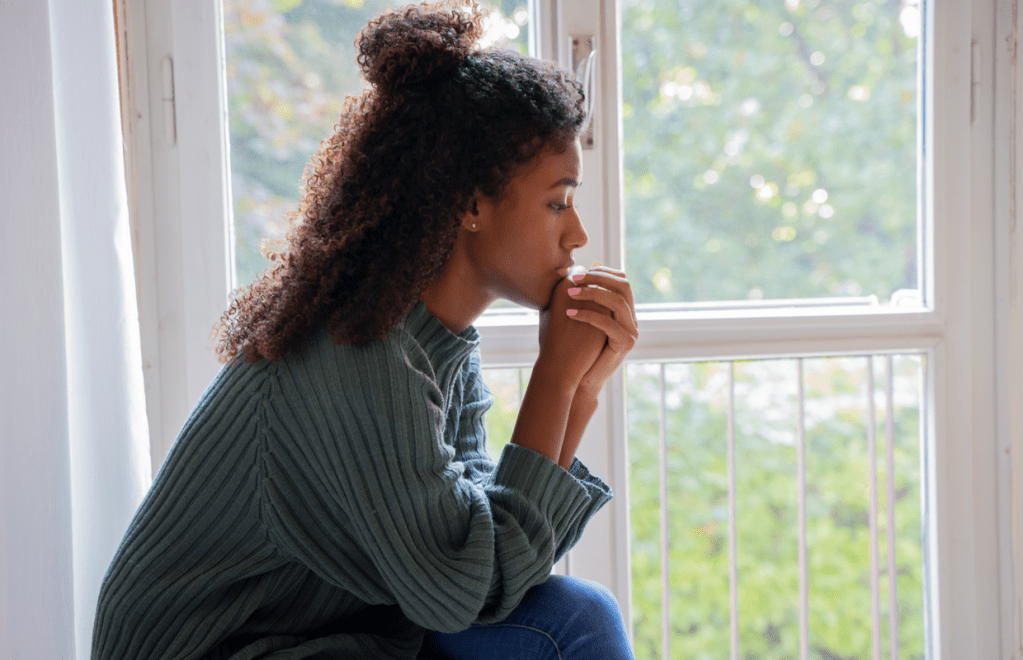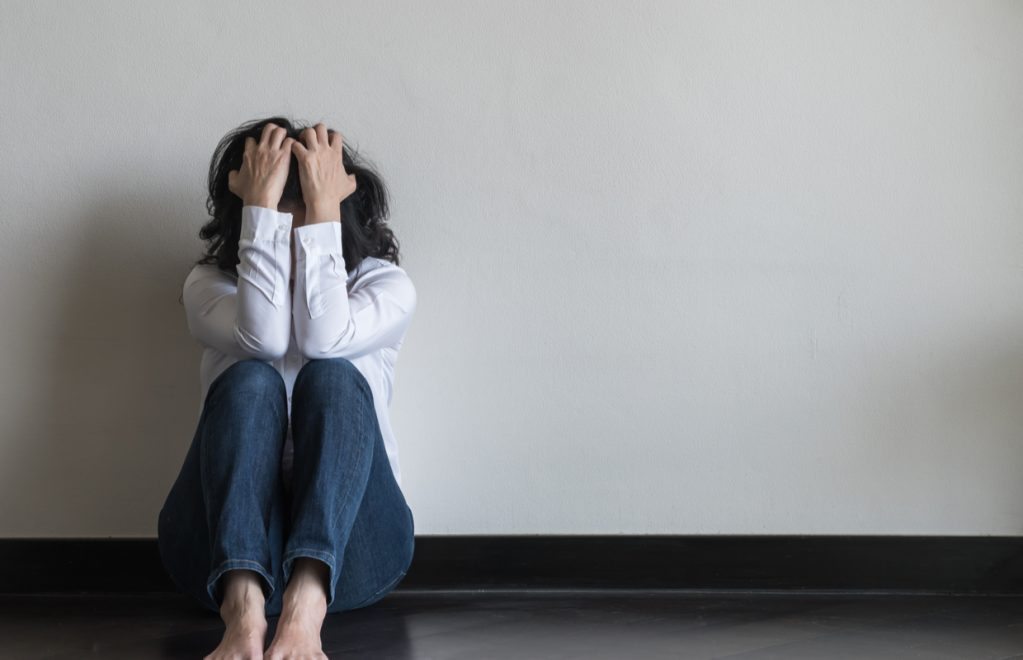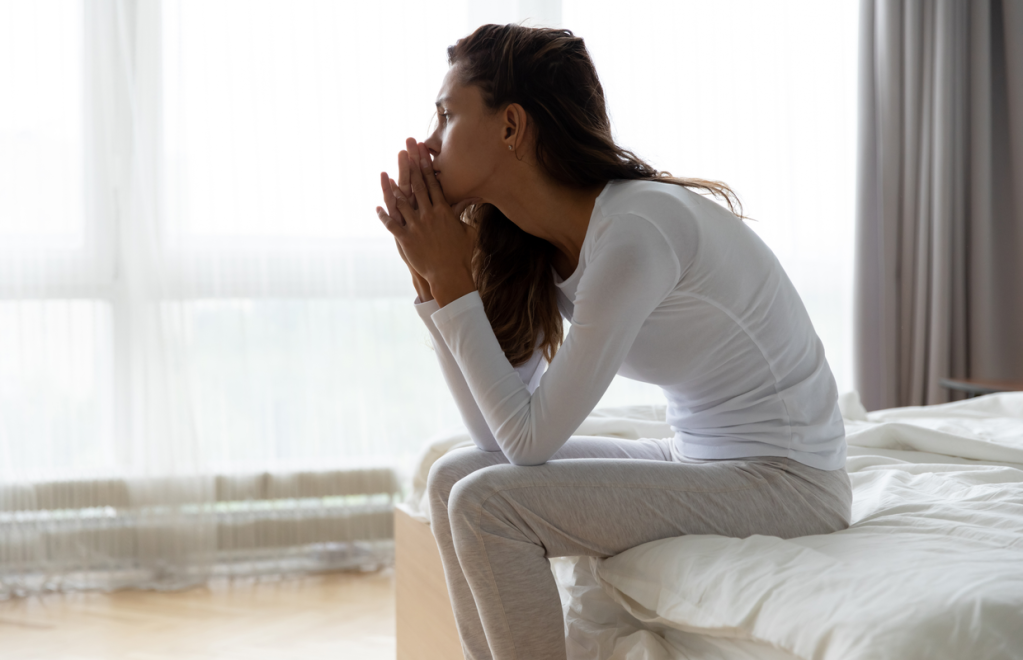How to deal with disappointment
It can be difficult to cope when hit with crushing disappointment. Learn how to get over disappointment and move on with these top tips...

When Nina Hobson’s dream of a new life abroad fell apart, she felt like a failure. Then she learned how to mourn her dashed hopes, and start again. Here, she shares her top tips on how to cope with disappointment…
Picture this: you awaken to gentle sunshine streaming through the curtains. From the garden of the lovely house that you own, you can hear birds singing. Your children are playing happily. You feel rested, calm and at peace. This is where I thought I’d be by the end of 2020.
Having heard about Ecuador’s low cost of living, mild climate and delicious produce, I was excited to move there with my husband and our three children. I would find a job and we would be able to afford a house. To my children, I’d spun tales of swimming with dolphins, harvesting bananas and meeting lifelong friends. But, when I arrived in the capital, Quito, it was disappointment after disappointment.

Facing disappointment head-on
Our temporary house was dirty and cold. A faulty internet connection made it difficult to order groceries online, and I couldn’t shop outside due to coronavirus restrictions. One day, faced with empty cupboards, I ate leftover airplane snacks.
Not long afterwards, my second child fell off a stool and suffered a concussion. When the hospital discharged him, we moved to a hotel where I thought things would be easier. In fact, due to staff shortages, the room was rarely cleaned and there weren’t enough beds for all five of us.
Thanks to heightened crime as a result of the pandemic, I couldn’t walk around on my own with the children so, when my husband left to work long hours at his office, I stayed in the hotel with the kids, cooped up with the stench of three-day-old room service burger scraps.
Returning late from work one night, my husband found me sobbing in the wardrobe. Crouched on a pile of dirty laundry, choking back tears so I didn’t wake the children, I admitted my disappointment, which I didn’t know how to cope with. I’d expected a happy life in the sun but, here I was, trapped indoors wearing ketchup-stained pyjamas.
Struggling to cope with disappointment
I decided to temporarily move back to the UK with the kids. As I landed at a rainy Heathrow, I felt relieved, but also utterly dejected. I’m 38 years old and was moving back in with my mother. My husband was thousands of miles away. I thought I would be sifting through job offers under the shade of a palm tree but, instead, I was huddled by a fireplace as my dreams evaporated.
I soon heard of other people’s disappointments – a friend whose wedding was put on hold due to lockdown and another who had lost her dream job. Then there were the tragedies – the friend whose parents both died within a fortnight of each other and who wasn’t allowed to attend either funeral due to social-distancing regulations.
The pandemic was capsizing lives – people were being made homeless, cancer patients were having their treatment delayed and the elderly were being forced into desperate loneliness.
Gaining perspective from the disappointments of others
‘Consider the misfortunes of others, and you will be better able to bear your own,’ wrote the Roman poet Ovid. Hearing about the disappointments of others didn’t make me happy, but it did offer perspective, and it brought me face to face with my sense of entitlement. I looked at people who were fighting real hardship and felt inspired by their strength.
I became more mindful of the things that others had lost; things that, until now, I had taken for granted. I still had a job that brings me immense satisfaction, my family were safe and healthy and my husband and I were very much in love. This helped me to cope with my disappointment. But still, it hurt. Part of the problem was that I felt ashamed.
At my age, wasn’t it my job to take care of my mother, not the other way around? Had I failed? Here I was, whining about not being able to buy a villa in the sunshine. Wasn’t I just feeling sorry for myself? It felt wrong to even admit my disappointment.

Regret versus disappointment
I spoke to Marcel Zeelenberg, a professor of psychology and an expert in the psychology of regret. He stresses the importance of distinguishing between regret and disappointment. Both are the result of failed expectations, however regret results from something that we believed was within our control, whereas disappointment arises from events beyond our control.
While regret leads to us blaming ourselves, we can cope with and get over disappointment faster. A conversation with my friend who lost her job helped me realise that it wasn’t my fault Ecuador didn’t work out. She assured me that my son’s accident was just that – an accident. And I helped her see that her work situation was a reflection of the economic crisis, not her abilities.
How to deal with disappointment
Covid has ushered in an unfamiliar, topsy-turvy norm, and many of us are grappling with disappointment. So how do we deal with it? I spoke to coach Jessica Rogers who shares some tips on how to cope with (and get over) disappointment…
Let yourself feel the disappointment
First, she says, we need to let our feelings run free. While children may throw a tantrum when things don’t go their way, as adults we’re conditioned to repress our emotions, she says. ‘It’s OK to be sad. It’s OK to shout. It’s OK to cry.’ We need to give ourselves time to let it all out.
Reclaim ownership over your disappointment
Then, the way to reboot is to take a first step, she says. Even if everything feels out of our control, by taking any action, no matter how small, we reclaim ownership. It’s empowering and builds momentum for positive change. We can’t control what disappoints us, but we can control our reaction to it.
For me, the switch came when I drew up a daily schedule. In the UK, I spend mornings homeschooling my kids, work in the afternoons and tidy up and relax in the evenings. To stick to this routine, I drafted in extra childcare, and my mother helps too. The sense of structure is reassuring for everyone in the household and I feel calmer now that I can work on my own. By reclaiming ownership and control, I’m able to better cope with my disappointment and move on.
How disappointment leads to resilience
Perhaps disappointment isn’t always a bad thing. A shock low grade was the kick up the backside I needed to pass my final exams at university. Resilience is founded on the idea that we can learn from disappointment and move on to greater things. It is founded on optimism. To build resilience, Rogers suggests noting what makes us feel disappointed and what makes us happy again. By doing this, we build up a personalised life manual, or ‘evidence bank of resilience’, as she calls it.

Looking back on disappointment
As a freelancer, I’m used to the disappointment of work rejections, but they can be wearing and difficult to cope with. To deal with this, I’ve been writing about them in my journal before bed. Its pages are crammed with appreciation for my family, my adventures, my work and friends. Reminding myself of what really matters, how far I’ve come emotionally and professionally and my plans for the future fills me with optimism. My little book motivates me to move on from disappointment.
I’ve also come to realise that while my disappointments have felt crushing at the time, they didn’t ruin my life and I was able to cope with them. Most of them now seem rather trivial. Sometimes, they even steered me on a better course. While what happened in Ecuador was disappointing, I realise Quito wasn’t the right place for me.
I am now putting together a plan to move to Uruguay. I doubt we’ll be able buy a home, and I know finding work will be tough, but the important stuff – living together safely as a family – feels within reach. This morning, I didn’t wake up to warmth and birdsong, but my children jumping on the bed. I certainly don’t feel rested but, after last summer’s disappointments, I feel grateful and inspired, and I know that I can cope with disappointment.
5 tips on how to get over disappointment
1. Let yourself feel the emotions of your disappointment
Allow yourself time and space to process your emotions. Whether you feel the need to cry, shout or be alone, that is perfectly normal and healthy. It’s important to let the emotions out, rather than bottling them up.
2. Write down and read over your emotions
Pick a time in the day to begin creating your own emotional bank of resilience following disappointment. For example, while drinking your morning cuppa, write down how you’ve been feeling and reread your notes. They will form a basis for understanding how you best cope with and ultimately get over the disappointment.
3. Open up about your disappointment to people you trust
Share your disappointments with your close friends or family to help you cope. Doing this can offer you reassurance that your feelings are normal and that you are not to blame for them. Just as importantly, opening up to others helps create a safe space for the people you care about to share their disappointments too.

4. Focus on the positives
Take a moment to be mindful of everything you’re grateful for in your life right now. Focusing on the positives in the present can help you stop dwelling on the past and move onto brighter tomorrows.
5. Draw a line under your disappointment
When you’ve begun to heal, don’t look back. Be mindful of the moment that you decided to move forward and congratulate yourself for leaving disappointment behind so you can deal with it and move on.








